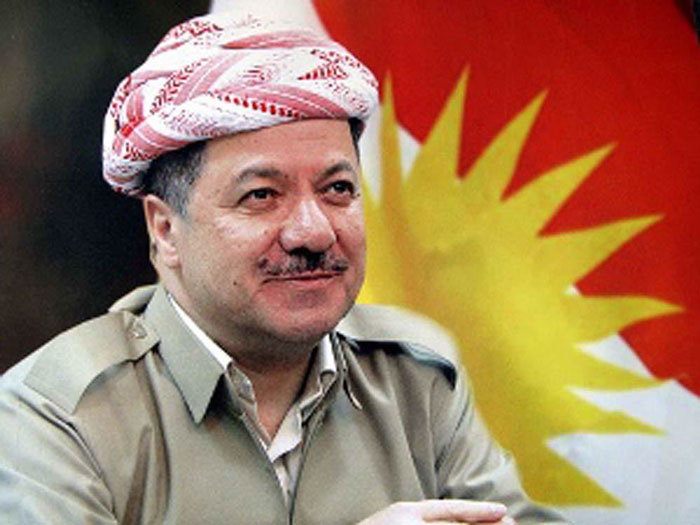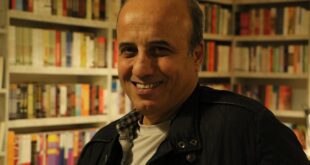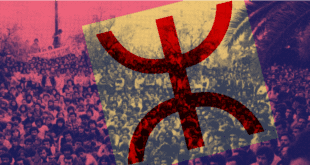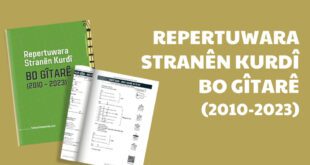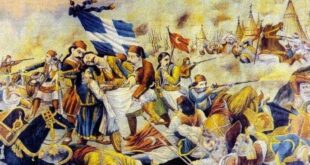By Yoosef Abbaszadeh
The question before Masoud Barzani is what to do in order to turn state-building rhetoric into a future Kurdish state.
The employment and distribution of wealth relies considerably on the loyalty that individuals and clans show to a certain political party. The preponderant nepotism stemming from the widespread party-based style of governing in public services has also penetrated into the private sector. This unfair distribution of wealth and opportunities will undoubtedly contribute to jeopardizing an independent Kurdistan, especially in terms of economic prosperity and social justice.
KRG’s President Barzani has recently intensified his efforts for independence. There might be many reasons for this. First and foremost, the state of Iraq is often regarded uncontroversially as a ‘failed state’, artificially designed by British and French colonisers in the aftermath of WW1, offering the Kurds nothing but a calamitous century-long history including genocidal attempts to eradicate Kurdish nationalism. Added to this, the domestic demand for the right of self-determination is well known to the Kurdish leadership. 98.8 percent of Kurdish voters said yes to independence in the Kurdistan independence referendum of January 2005.
The small region of Kurdistan, little more than an autonomous region of Iraq protected by a no fly zone before the overthrow of Saddam, has now become an international entity. The KRG has its own foreign relations apparatus with 34 foreign consulates operating in Erbil. It has also a vast economic reach mainly because of colossal oil and gas preserves in Kurdistan as well as its trade with neighbouring countries. This has convinced the outside world that the notion of a Kurdish state is no longer out of the question.
Since 2014 the Islamic State, (IS), has become another reason for the Kurds to speed up their efforts to secede from Iraq. Failing to defend Iraq’s second largest city of Mosul against IS assault, Iraq’s army also left the Kurdish city of Kirkuk, a troublespot between Arab Iraq and the Kurds for much of the last century. Taking advantage of the security vacuum, the Kurds sent Peshmerga forces into the city in order to prevent it falling into the hands of IS. This led to Kurds regaining almost all of 40 per cent of the territory that used to be considered, since 2003, “disputed areas”. In addition, rows between Baghdad and Erbil over the KRG’s oil policy reached a point of no return when in 2015 the Iraqi government refused to send its full share of Kurdistan’s 17 per cent of the national budget.
The question before Masoud Barzani, nonetheless, is what to do in order to turn state-building rhetoric into a future Kurdish state which has successfully obtained the right of self-determination?
Needless to say, any given state-building process requires domestic and external prerequisites. With respect to the latter, international and regional actors have to reach a conclusion as to how such a Kurdish state would be perceived, that does not contradict their multiple interests in the region. However, assuming, for the sake of argument, that such key external entities as Turkey and Iran will be relatively tolerant towards the emergence of a Kurdish state, salient domestic preparations need to be made. In what follows I will focus on this dimension in particular.
The German sociologist, Max Weber’s classic definition of the state, as a monopoly over the legitimate use of violence within an established territory, still seems valid. Taking the two criteria of “monopoly of violence versus multiple purveyors of violence” along with “legitimate purveyor of violence versus illegitimate purveyor of violence” into account, there are four categories in which to describe any state, which are explained below.
Any state possessing a monopoly of violence (one unified coercive force: army) and which possesses a legitimate purveyor (popular and inclusive democratic government) and which uses this violence to keep law and order in place and protect the sovereignty of the state, is considered a ‘consolidated state’. States without these characteristics are often seen as ‘failed states’, either as “factionalized/fragile state”, because they lack a monopoly of violence or as “predatory states”, when their illegitimacy is their distinctive feature.
Applying this to Kurdistan, it must be recognised that there are currently two partisan armed and security forces (traditionally known as Peshmerga) in Kurdistan, each under the control of one of the two major political parties; the Kurdistan Democratic Party (KDP) and the Patriotic Union of Kurdistan, (PUK). The potential here for endless malign partisan conflict, could spell a future Kurdish state of hazardous chaos.
Although these Peshmerga forces are evidently perceived as the foremost resource of the Kurdish struggle for survival over the last century, especially due to its current internationally recognised battle against the Islamic State, the resulting disunity threatens the stability of any future state of Kurdistan. The fragmented characteristic of Iraqi Kurdistan with its historically fissiparous nationalist struggle, which deprived it from having a unified army, is something to fix before stepping into statehood, considering the infamous capacity of the Middle East for unprecedented conflicts of all kinds.
Since domestic division has long been at work, even in the shape of civil war in the 1990s, weakening Kurdistan’s stance on all fronts, a sincere and decisive decision has to be made in reuniting all the Peshmerga forces. This is something KDP’s President Barzani and PUK’s Jalal Talabani will have to do to meet one of the very basic pillars for any relatively consolidated state to survive and thrive.
The KDP and the PUK agreed to reunite the offices including a Ministry of Peshmerga affairs, but another source of concern is the perpetuation of the divided institutions for governing the KRG’s territory. In the recent economic crisis following the oil price falling to its lowest in decades, the KRG failed to pay civil servant salaries from mid-2015 onward. This added to political disputes over the extension of President Barzani’s office term, fuelling public protests and strikes in late 2015. Protestors stormed the ruling KDP party’s offices across the region resulting in 5 deaths. Immediately afterward, KDP’s Prime Minister removed four ministers (from the Gorran Movement, the second largest faction in Parliament) from his cabinet. On the same day KDP’s security forces barred the Speaker of the Parliament, Yousif Muhammad also from the Gorran Movement, from entering the capital of Erbil, and accused them of responsibility for the violent acts of some protestors against the KDP offices. Such political squabbles have incapacitated Kurdistan’s parliament since then, the body that would have to oversee any progress leading to a referendum for independence.
Moreover, media sources such as satellite channels, news outlets and local TV and radio are also heavily divided and almost exclusively under political party control, yet with no single national TV channel as a mouthpiece of Kurdish national interests.
The employment and distribution of wealth relies considerably on the loyalty that individuals and clans show to a certain political party. The preponderant nepotism stemming from the widespread party-based style of governing in public services has also penetrated into the private sector. This unfair distribution of wealth and opportunities will undoubtedly contribute to jeopardizing an independent Kurdistan, especially in terms of economic prosperity and social justice.
Ironically, even the KRG’s foreign relations has become an arena for partisan antagonism: the KDP has a close relationship with Turkey on one hand, and the PUK and Goran movement seem to get on better with Iran on the other hand. This in itself has spawned a deeper breakdown between political fractions.
This socio-political division in Iraqi Kurdistan, has placed some irreversible political and economic burdens on Kurds both at the domestic and foreign levels. As an example of domestic failure, the affluent region of Kurdistan is suffering from an inability to accommodate basic provisions such as water and electricity for its small population of roughly 6 million. The dominant rentier economy has served a small proportion of the society that has an association with political parties in one way or another. This has left the majority of the public in poverty, to an extent that the sharply growing gap between the poor and the rich suggests that obtaining a just social system for any future Kurdish homeland will be far more challenging than independence itself.
Having suffered from this political division, the public in Kurdistan have wholeheartedly expressed a demand for unity and furiously protested against the deviation of Kurdish politics from this goal. They know that legitimacy as one of the main elements of a functioning state, cannot be achieved in a future state of Kurdistan if political leaders undermine the public demand for unity. This is something that is widely echoed in the oral and written language of the Kurdish public, from cafes to social media and from family and neighbours to institutes. These unheard voices rightly signal the fact that the current wide-ranging political disunity ensures that a prosperous Kurdish state will only be greeted with intensive scepticism.
Current developments in the Middle East have never been more in line with Kurdish collective calls for self-determination. Envisaged by many observers as a kind of pioneering democratic experience in a region traditionally fertile for totalitarianism, the Kurdistan region of Iraq is a relatively stable region in the civil war quagmire of Iraq. This fact along with the internationally recognised Kurdish co-operation in the battle against ISIS could serve a future Kurdish statehood well, if Kurdish leaders manage to set their own home in order. Otherwise though, considering the current internal prevalent disputes and squabbles between political parties, it will not surprise anyone to see President Barzani’s appeal for independence remaining mere rhetoric.
Source: Open Democracy
 Înfo Welat Enformasyon Ji Bo Welat
Înfo Welat Enformasyon Ji Bo Welat
